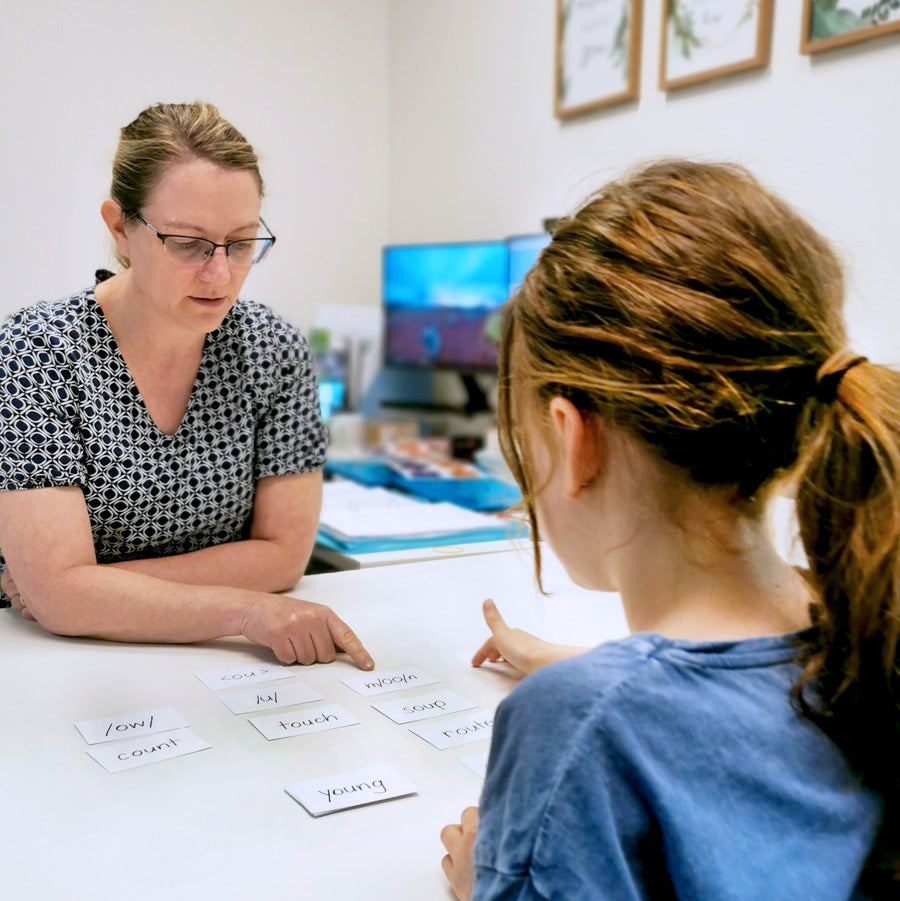Dyslexia
Dyslexia is a specific learning disability that is neurological in origin. It is characterised by difficulties with accurate and/or fluent word recognition and by poor spelling and decoding abilities.


Learning to read can be difficult for many people. Reading is skill that requires careful, evidence-based, systematic teaching and guided practice for students to be successful.
Some students continue to find learning to read more challenging than their peers, despite a good level of direct reading instruction. These students may have an underlying specific learning difficulty affecting reading development, commonly referred to as Dyslexia.
What is Dyslexia?

Dyslexia can be defined as:
... a specific learning disability that is neurological in origin. It is characterised by difficulties with accurate and/or fluent word recognition and by poor spelling and decoding abilities.
These difficulties typically result from a deficit in the phonological component of language that is often unexpected in relation to other cognitive abilities and the provision of effective classroom instruction.
Secondary consequences may include problems in reading comprehension and reduced reading experience that can impede growth of vocabulary and background knowledge.*
*This definition is the preferred definition of DSF and AUSPELD, as well as the International Dyslexia Association (IDA) and the National Institute of Child Health and Human Development (NICHD).
What do we know about Dyslexia?
Research demonstrates that Dyslexia:
- affects 3% to 10% of the population
- has a neurobiological basis (the brain functions differently)
- does not imply an intellectual disability (people often have average or above average IQ)
- is not directly linked to vision and hearing issues
- causes difficulty with phonological awareness and processing (tuning in to, and manipulating the speech sounds of language)
- has a strong hereditary component
- is a lifelong condition from birth
With appropriate supports and strategies, people with dyslexia can lead an independent, full and successful life.
Dyslexia is sometimes referred to as a:
• Learning disability
• Specific learning difficulty
• Reading disorder
• Reading disability
Core difficulties associated with Dyslexia
What are the core difficulties?
- Processing the sounds in words (phonological deficit)
- Auditory short-term memory
Retrieving words from vocabulary (naming speed) - Recognising and remembering the ‘look’ of words (orthographic processing)
- Attaining automaticity in underlying and component skills needed for reading and written language
- Multi-tasking
How do these core difficulties affect the dyslexic person?
Research demonstrates that Dyslexia:
- Phonological deficit →
- Difficulty working with the sounds in words eg, identifying beginning and end sounds in a word, producing a word that rhymes
- Problems learning phonic (letter/sound association) skills
- Poor auditory short-term memory leads to difficulty with:
- Blending sounds together
- Taking in verbal information
- Remembering instructions
- Learning lists of facts
- Slower naming speed →
- Difficulty recalling names and words
- Less fluent oral reading
- Trouble with basic sight words
- Orthographic processing difficulties →
- Reading and spelling problems
Attaining automaticity in underlying and component skills needed for reading and written language. They may be able to perform the required skills but the process is slow, effortful and mechanic →
Can only do one thing at a time (eg, can’t focus on spelling and ideas when writing, can’t decode words and take in the meaning of the text) → difficulty with
- Reading/comprehension
- Written language
- Listening/note-taking
- Difficulty multi-tasking →
- Problems with organisation
- Problems with time management

